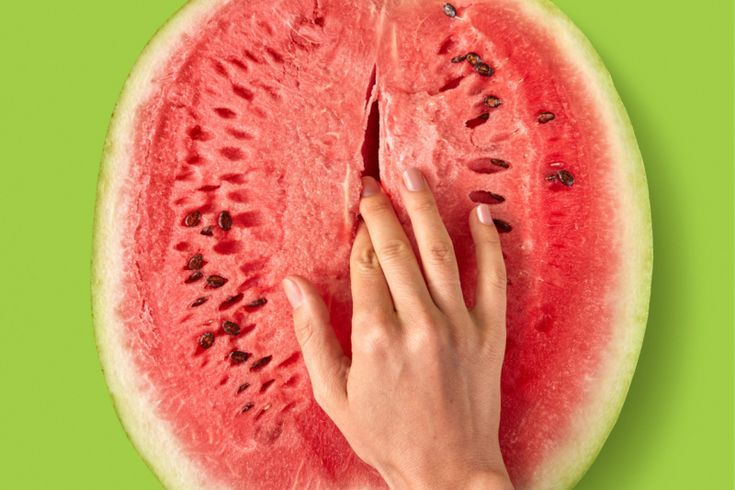Cranberries—familiar to many for their tart taste and striking red colour—are often found on Nigerian and Ghanaian shelves as imported juices, dried snacks, or incorporated into health products. While these berries are a staple in Western festive cuisine, research and expert opinion are increasingly highlighting their potential role in supporting urinary and vaginal health, a topic of special interest for many women across West Africa who seek natural ways of maintaining their wellbeing.
Below is an in-depth look at five ways cranberries and cranberry-based products could influence vaginal health, drawing from global research while speaking to the unique context faced by women in Nigeria, Ghana, and beyond.
1. How Cranberries Support Urinary Tract Health
Cranberries have long been associated with the prevention and management of urinary tract health, a benefit that is particularly relevant for women in Africa, where access to specialists may be limited and recurrent UTIs can be disruptive. According to studies published by the Journal of Urology and various health authorities, cranberries contain proanthocyanidins (PACs), natural compounds that help inhibit harmful bacteria like Escherichia coli (E. coli) from sticking to the urinary tract lining.

This is especially significant because women’s urinary and vaginal tracts are anatomically connected, making it easier for infections to move from one area to the other. For Nigerian women, and indeed many in West Africa, preventing urinary tract infections can mean fewer days lost to discomfort and reduced risk of complications. Health experts in Lagos and Accra, such as Dr. Ifeanyi Uche of Lagos University Teaching Hospital, often recommend incorporating cranberry juice or supplements as a complementary preventive measure alongside proper hydration and hygiene practices.
2. Addressing UTIs Naturally: A Practical Approach
Urinary tract infections (UTIs) affect millions of women worldwide and are a frequent complaint in clinics across Nigeria, Ghana, and the rest of Africa. Symptoms range from pain and burning during urination to lower abdominal pressure, and left unchecked, can sometimes progress to more serious complications.

While cranberries are not a substitute for medical treatment when managing an active infection—a key point made by pharmacists such as Adwoa Mensah, a women’s health advocate based in Accra—they are often recommended in Nigeria as part of a larger regimen to reduce recurrence. According to the World Health Organization, preventive approaches remain essential due to growing antibiotic resistance. By including cranberries in the diet, women reportedly can lower the frequency of UTIs, leading to improved comfort and reduced inflammation in areas intimately linked to vaginal health.
3. The Role of Cranberries in pH Balance
One unique property of cranberries is their natural acidity, which, according to leading nutritionists, helps create a less hospitable environment for bacteria in the urinary tract. However, moderation is key. Dietitian Mrs. Chioma Olumide, based in Abuja, explains that while the acidity from moderate cranberry intake can support a healthy bacterial balance, excessive consumption might temporarily disrupt the body’s normal pH.

In the West African climate, where hot weather and frequent sweating can already impact hydration and vaginal comfort, maintaining an optimal internal pH is vital. Sudden changes, sometimes triggered by overconsumption of acidic foods or drinks—including cranberry juice—could spark a temporary imbalance, mild irritation, or changes in the natural flora. That’s why most health professionals recommend using cranberry products as part of a balanced diet, not as a cure-all or overused remedy.
4. Noticing Changes: Vaginal Discharge and Sensitivity
Some women in Nigeria and Ghana who try cranberry juice for the first time, especially in large amounts, have reported noticing changes in their vaginal discharge. This phenomenon, according to Dr. Kofi Mensah of the Ghana Association of Medical & Dental Practitioners, is not usually cause for alarm but rather an individual response to increased acidity or certain compounds present in the fruit.

According to the experience shared by Ngozi, a Lagos resident, “After I started drinking cranberry juice daily, I noticed my discharge was slightly different, but it went back to normal after reducing the amount.” If you notice unexpected changes in discharge or experience discomfort, it’s wise to limit cranberry intake and seek advice from a qualified healthcare provider, as such changes may sometimes indicate sensitivity or unrelated health conditions requiring attention.
5. Antioxidants and Anti-Inflammatory Support for Vaginal Health
Cranberries pack a punch when it comes to antioxidants—natural agents that help the body combat free radicals, which can cause cellular damage. This is particularly significant for women dealing with inflammation in the vaginal area caused by minor irritations or conditions like yeast infections. According to global nutrition expert reports, antioxidants may help reduce localized swelling and discomfort, making recovery from mild irritation swifter.
Furthermore, cranberries’ flavonoids—another group of protective compounds—are reported by nutritionists at the University of Ibadan to lend additional support to the immune system. In West African settings, where public transport and market environments can sometimes increase women’s exposure to bacteria or irritants, such immune support is a meaningful bonus. However, while these benefits are promising, they should be seen as part of an overall healthy eating and lifestyle routine.
For women in Nigeria and other West African countries, adding cranberries to the diet—whether through juice, supplements, or as part of imported dried products—could help maintain urinary and vaginal comfort. It’s worth noting that the effectiveness of cranberries in UTI prevention has shown mixed results in studies, but their regular use remains popular due to their refreshing taste and antioxidant qualities.
If considering cranberry supplements or juices, be mindful of sugar content, as excess sugars may contribute to other health issues such as weight gain or yeast infections—a point often raised in nutrition clinics. Ultimately, moderation and listening to your body’s signals are key. As with any health-related dietary change, consulting a medical professional is the best way to tailor choices to your individual needs and ensure your wellbeing.









